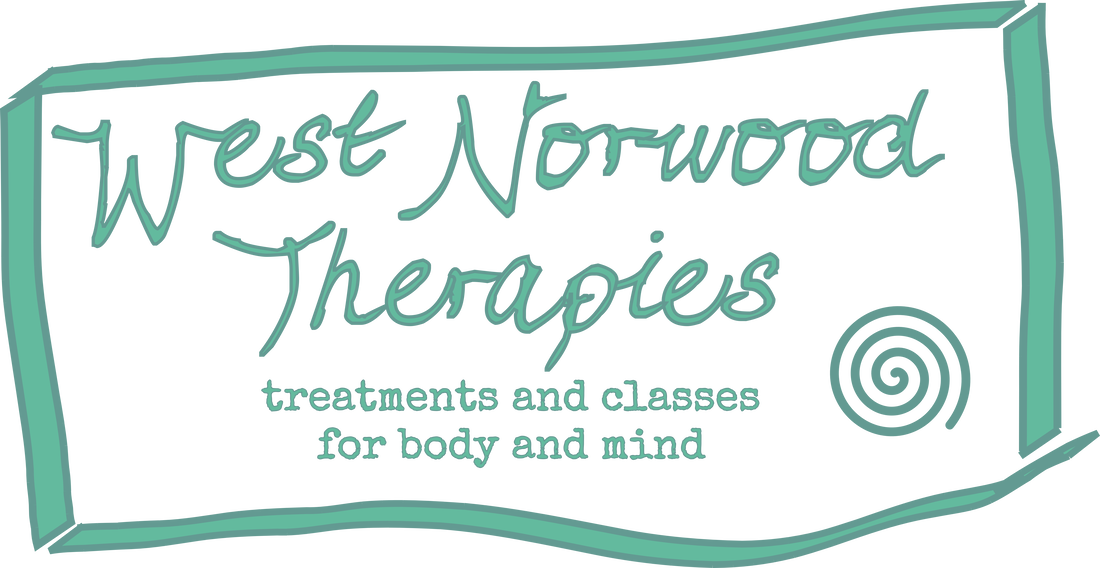|
Sports massage therapist Tessa Glover interviews her client Emily Hayter who is a competitive swimmer who trains with Spencer swimming club. Emily shares how she approaches training and competing and encourages us that swimming can be taken up at any age and stage. Thanks for sharing Emily! 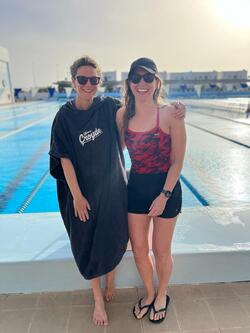 How long have you been a competitive swimmer? I always loved the water and I swam competitively for a few years in my early teens while I was living in Canada. I swam on and off on my own after that but was mainly keeping active through other things. After a 17 year break from club swimming I joined a Masters club, Spencer, in London in my early 30s and started competing again. How did you come to choose your preferred swimming stroke and distance? It's changed since I was younger, partly due to injuries (eg no breastroke because of my knees so no medley events anymore). The only one of my favourite events from when I was younger which I'm still doing is the 50m butterfly. One thing that's great about pool swimming is you learn and practise all four strokes, so everyone finds their own favourite. Aside from the 50 fly I race all freestyle, everything from 100m to 1500m. This year I'm also doing my first open water event which will be 3800m. At some point I might need to choose between the short and long distances though, as it's difficult to train for both at the same time. What do you love most about swimming? What does it give you? As an adult, swimming in a club has brought me back to a regular fitness schedule, guided by a coach and in the company of great fellow swimmers. I get so much more from it than I was getting just from going to the gym. I've also made new friends and started going on swimming trips like training camps at Club La Santa in Lanzarote and sea swimming holidays in Italy with SwimTrek. I feel inspired by the older swimmers in Masters, many of whom are still racing and setting records in their 60s and beyond. Club swimming has brought me great examples of how to stay fit in later life. What's the toughest part of training for a competition? I've always been more of a training person than a racing person. I like training and usually go 3 times a week with Spencer. Some people are the opposite, they love racing but not so much training. The unpredictability can be tough in both training and racing. You have good days and bad days in the pool, and they can be quite random (ie not linked to diet, rest etc) which can be discouraging. So trust and confidence in the training you've been doing throughout the year is important. There's also a lot of technique to think about in swimming, and we work on that all the time. It's difficult to change ingrained habits and patterns of movement, and it takes patience. I usually find that as soon as I fix one technique detail I start doing something else wrong! So it's a continuous process. Can a swimmer get into competitive swimming as an adult? Definitely! I know several people who only started doing lane swimming or learned all the strokes as adults and then got into competitions, either in pool/Masters swimming, open water or triathlon. At my club not everyone competes in pool competitions, some people do triathlon or open water and others just train for fitness and don't compete at all. How do you look after yourself physically and mentally? I do pilates a few times a week, which helps with management of old knee and back injuries that would otherwise prevent me from swimming. Swimming encourages me to do these types of conditioning exercises I should have been doing before but wasn't motivated to do. I used to do yoga but after learning more about hypermobility I swapped to pilates and find it better for me. I also go for massages with Tessa at WNT which really helps me manage a neck issue I've developed. I'm lucky to have generally good mental health. I try to maintain it through exercise, work/life balance, social life and occasional restorative yoga. I love food and eat a lot but generally pretty healthily. Another thing I should have mentioned that swimming gives me is the excuse for a lot of snacking.
0 Comments
How long have you been a swimmer and when did you discover the joy of open water swimming?
Although I learned to swim as a child I only took up Open Water swimming aged 51. As my youngest son finished his A levels, I found myself with more time at weekends. I know you consider yourself to be a slow swimmer compared to others but you are a strong endurance swimmer. When did you discover that you can swim long distances? And what’s the key to endurance swimming? After a few 1 mile (1.6km) lake swim events I decided I wanted to take on bigger challenges, so next up was a 1.9km then a 3km swim. I couldn't find anyone to join me for the Jubilee river 10km relay and ended up signing up to swim solo instead. It was at this point I decided I needed some swim coaching so joined Windrush Triathlon club, a multi-sports club in south London. After the Jubilee marathon I did several other long distance swims and also went on some open water swimming holidays. My tips for endurance swimming are to keep working on your swimming technique over winter, then gradually build up to longer distances in lakes, rivers and the sea as the weather warms up. Experience of being able to handle currents, cooler water and all weather conditions helps a lot. Breathing, technique and cardio fitness combined? Anything else? Relaxed breathing comes with practice and I would also recommend some strength and conditioning sessions and of course regular sports massages. What do you consider to be the main benefits of open water swimming? I experience a huge sense of wellbeing swimming outside. I love the sensation of moving through the water, hearing birds, seeing fish (sometimes) and feeling part of nature. The open water swimming community is extremely friendly and I love the challenge of different water conditions. A sea swim between the same two points will be different every single time so you never get bored. I like to think there are health benefits and I definitely feel more mentally resilient. What advice would you give to people who would like to try lake or sea swimming for the first time? Many venues have introductory sessions so I would try these. Don't wait until you can persuade a friend, as you will meet like-minded people there. For sea swimming I would rely on local knowledge and join online communities. For a first time open water swimmer, what are essential items they should buy/borrow? Essential items are a comfortable swimming costume, a brightly coloured swim cap and goggles. If you want to try a longer swim and/or cooler water, a wetsuit is recommended. You can hire these at many venues if you want to try one out. I bought my first wetsuit second-hand. Make sure it is a swimming wetsuit though, a surfing one will restrict your shoulders. I would also recommend a tow-float unless it is very windy and the first time you swim against the current (outside an organised event), fins can be useful. Margi is Swim Captain at Windrush Triathlon Club https://windrushtri.co.uk/swimming This week we have a guest post from our dear friend Yinka who used to work with us as an osteopath and yoga teacher and with whom we maintain a strong and respectful relationship. Here Yinka muses on the benefits of her allotment to her wellbeing in honour of 'National Growing for Wellbeing' week 7-13th June 2021. 4 years ago, my name finally came to the top of the allotment waiting list. It was a mess of cooch grass, weeds and dumped bits and pieces. I feel in love with it straight away, and it quickly be-came my happy place. It has been hard work, frustrating at times and mud under the fingernails and osteopathy are not an ideal combination. As we went into the first lockdown of 2020 it really kept me going and became a place that was essential for my wellbeing. I had more time on my hands than I have had in many years but no seedlings or plants and no option to by any. I decided that it was time to put the small propagator that I had bought 2 years ago into operation. I bought a selection of seeds online and set to work. Choosing the seeds was a combination of things I like to grow, what was available and wishful thinking.
Seeds were sown and I waited, I have a very small but much appreciated garden and really en-joyed using the space for sowing seeds potting on, and “designing” what was going where. It was a place of calm and when the world felt chaotic and uncertain. Having the time to think about the layout of beds helped to keep me focused and grounded, digging and weeding took on a new zeal as it was time out of the house when there was very little opportunity to do much else apart from work. In years gone when time was short; I have bought what I can get my hands from garden centres and shops to plant out so quite haphazard about things. Last year I thought more about colour, variety and protecting my seedlings and plants from foe like foxes, slugs, snails, and pigeons (more on that later). Checking my plants became a daily relaxing ritual. Go-ing to the allotment most days became my regular exercise, quietly whiling away the hour(s) out-doors and feeling relaxed whilst forgetting albeit temporarily about the pandemic was blissful. Our allotment is not pretty, it’s my higgledy piggledy happy place and its design is ever changing and forces me to accept what I cannot change (the elements, pests, dud seeds) and keep trying new things. Yinka runs her osteopathic clinic from her home in Brixton and online yoga classes. Visit her website at https://www.holmewoodosteopathicpractice.co.uk/ and find her on instagram @theosteopathyogi |
AuthorBlogs from the WNT team. For our blogs from before June 2020 please see individual profile pages - it's a good way to get to know practitioners too. Archives
June 2024
Categories
All
|
|
Visit us - by appointment only please - in the office block in the Access Self Storage premises at 443 Norwood Road, London, SE27 9DQ
[email protected] Phone - please contact practitioners directly, or if not in a rush you can leave a message for us to call you back at 07931876931. |
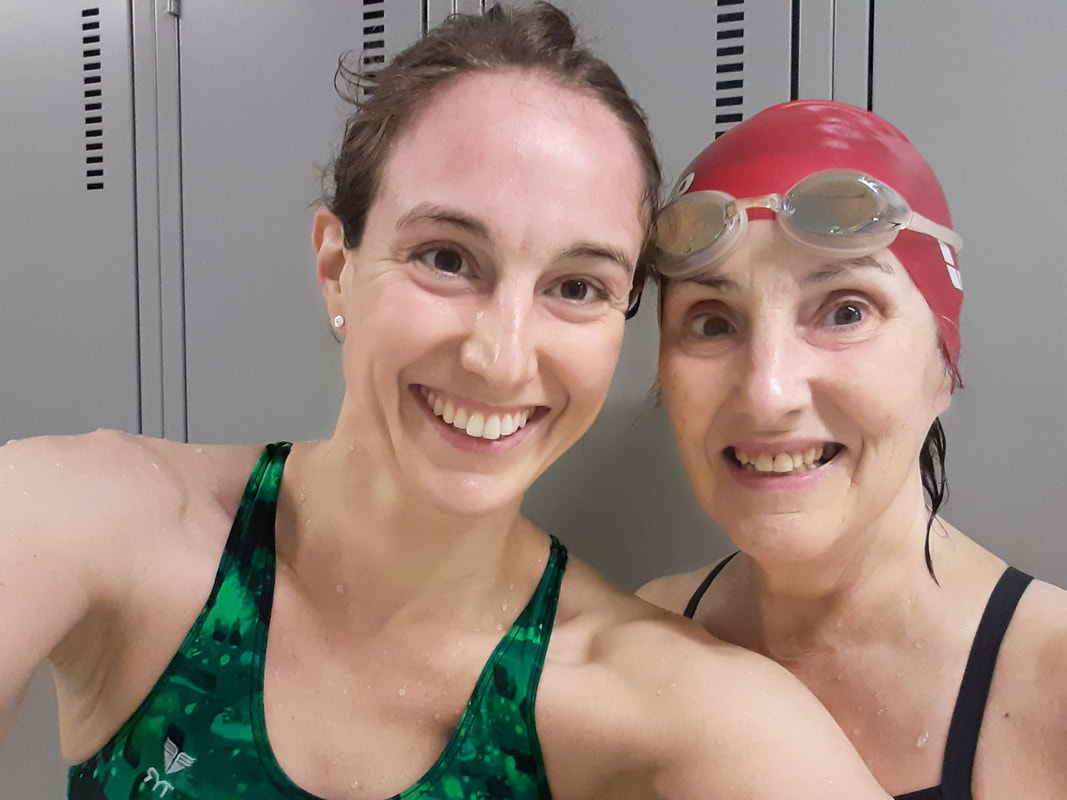
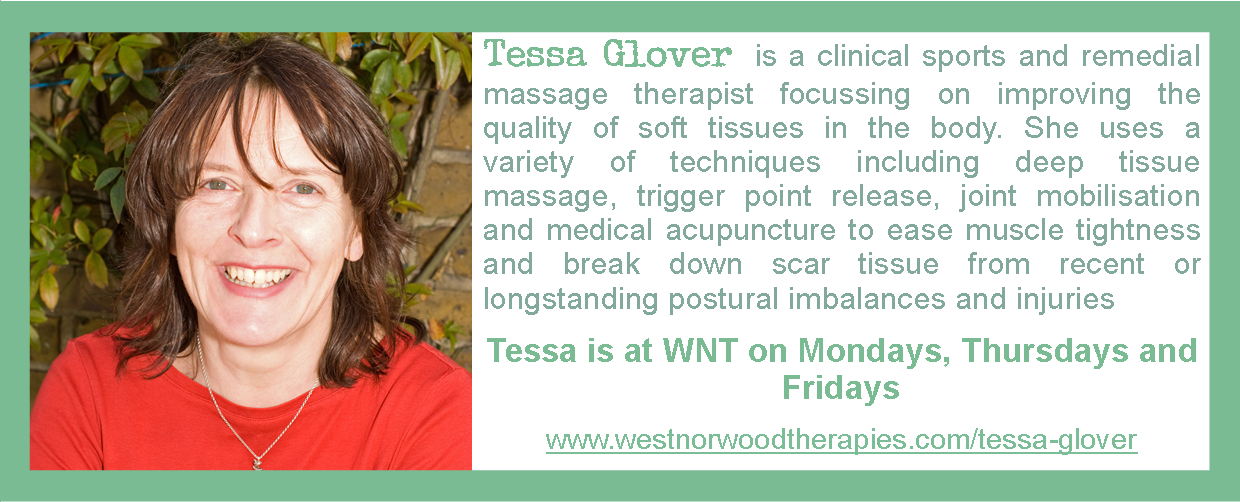

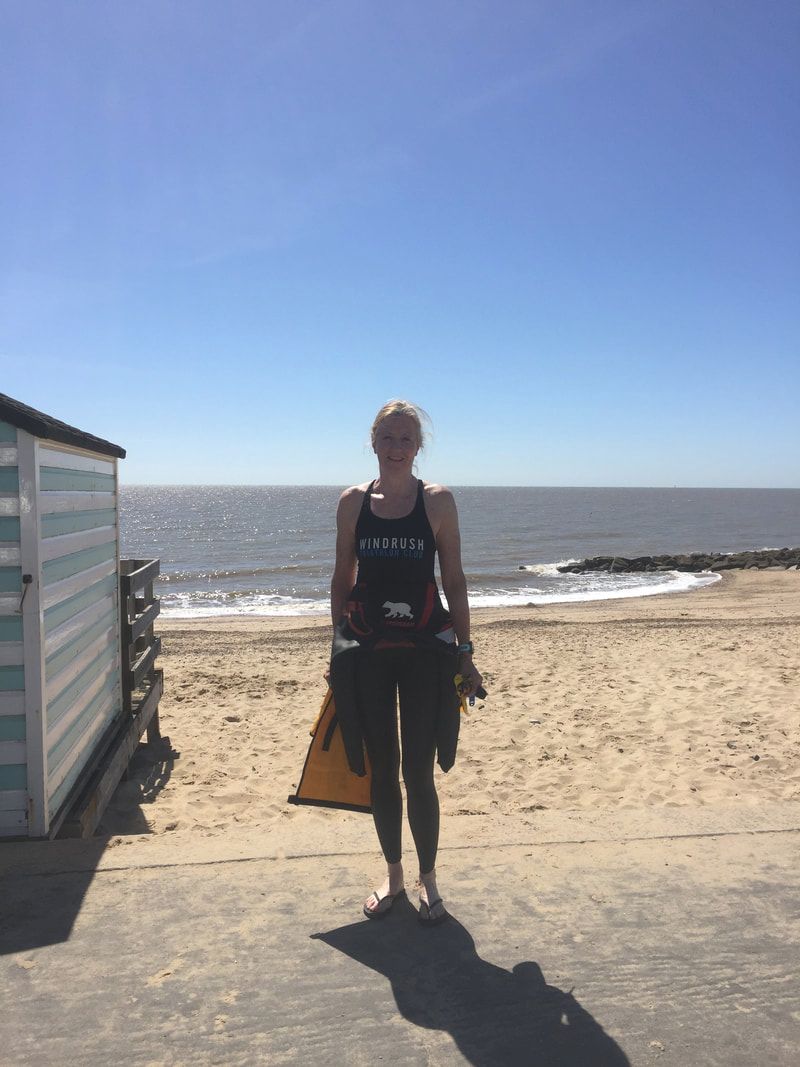
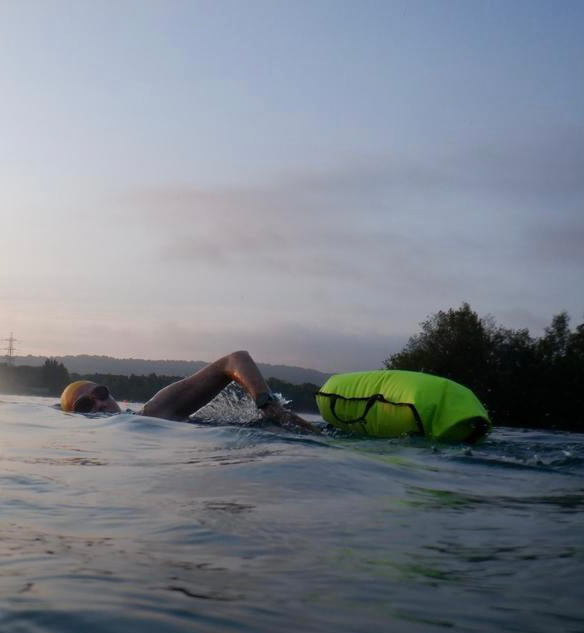
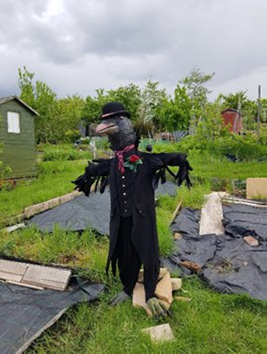
 RSS Feed
RSS Feed
